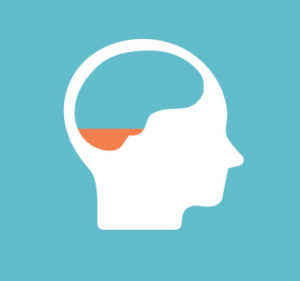Traditional schools neglect interpersonal skills
One of the most crucial shortcomings of our current widespread school system is that it doesn’t prepare students with the skills they will actually need in the “real world.” Schools and standardized tests focus more and more on content at the expense of students’ social and interpersonal skills. If we continue to ignore those skills, we risk the success of the next generation.
Not all students need to know how to factor or remember which generals fought in the War of 1812 in daily lives. However, we all need to know how to manage our time, communicate with those we’re working with, handle conflict constructively, and work together to tackle any problems that come up.
The best way to learn these skills is by doing them. The microschool model establishes a framework that allows the students to work in groups and be in community with each other. It is a safe place to try and sometimes fail, reflect, and try again. Older students and adults also participate in the school’s community and model healthy interpersonal relationships. Even when the students’ learning goal is focused on content, they are learning in a community and building interpersonal skills in parallel with their academic knowledge. Here’s a breakdown of that framework.
Microschools build interpersonal relationships
Project based learning promotes collaboration
Project based learning is a hallmark of a microschool. Rather than asking young students to sit still and teaching them by lecturing, students learn through exploration and discovery. For example, a learning coach may challenge a group of students to grow a plant from a seed and keep it alive for several weeks. Those students might research what plants need to grow, learning content in their biology curriculum. They might divide up the work and share what they find with each other. Since their group has one seed, the group would have to discuss any disagreements until they agree on the best way to grow their plant.
Let’s assume that our group’s plant starts growing well for the first week, but starts wilting in the second week. Now the group has a problem to solve together. They could look up the problem online to see if anyone else has had the same issue and found a solution, just as an adult might. With some guidance, they would learn the process of attempting a solution, monitoring its effects, and re-evaluating. In working together to grow a plant, or in any project, students build layers of skills. The collaboration, discussion, research, and problem-solving skills learned along with the biology content are general skills that will be useful no matter what each student goes on to do.
Socratic dialogues develop critical thinking skills
Another signature element of a microschool is engagement in regular Socratic dialogues. In a Socratic dialogue, a learning coach prompts students to examine a topic with a question. Rather than a teacher formally giving them an “answer,” the students are free to think about it themselves and come up with their own ideas. For example, they might consider the causes of the Civil War and whether it could have been avoided. The students voice their opinions in a group of their peers.
As their skills develop, they learn to not only voice their opinion, but also to give supporting reasons for their viewpoint. They also learn to listen and respond to others’ viewpoints. It’s useful to have the ability to back up your own claim, but it’s an even stronger skill to critically evaluate someone else’s claim. Sometimes it means a change in your original perspective, and sometimes it means learning to respect another viewpoint. No matter what field a student eventually goes into, the ability to respectfully hear a differing opinion and engage with that person is a hugely beneficial skill.
High student agency teaches conflict resolution skills
Finally, one of the most unique characteristics of a microschool is the way the school’s rules are created. Students participate in creating a community behavior contract between themselves and their fellow students as preparation for adult membership in society. Each week, the students hold a town hall meeting where they discuss any issues that have come up that week and make adjustments accordingly. Students naturally learn the effects of various rule systems by living in the framework they’ve created. This microcosm of government not only helps them understand the purpose of a governing body, but also fosters a sense of responsibility to their community.
The students also hold each other accountable for following those rules. Of course, rules are sometimes broken. This puts the students in the sometimes uncomfortable position of telling a peer that they broke the community’s contract. Even as adults, initiating such a confrontation can be difficult. The microschool model doesn’t shy away from those uncomfortable situations. Instead, the school offers students guidance and support in developing the skills to handle it.
A lifelong challenge
Developing interpersonal relationship skills is a lifelong challenge. Even as adults, we strive to become better at difficult conversations with colleges, bosses, or even family members. One of the best things we can do for our children is to help them start building those skills early. If a microschool creatively builds social interaction into the way a their school functions, it doesn’t have to take time away from learning the content of a course. Rather, students strengthen their interpersonal skills along with their academic achievement. That progress might not be measured on a test, but it’s certainly too important for us to ignore.


